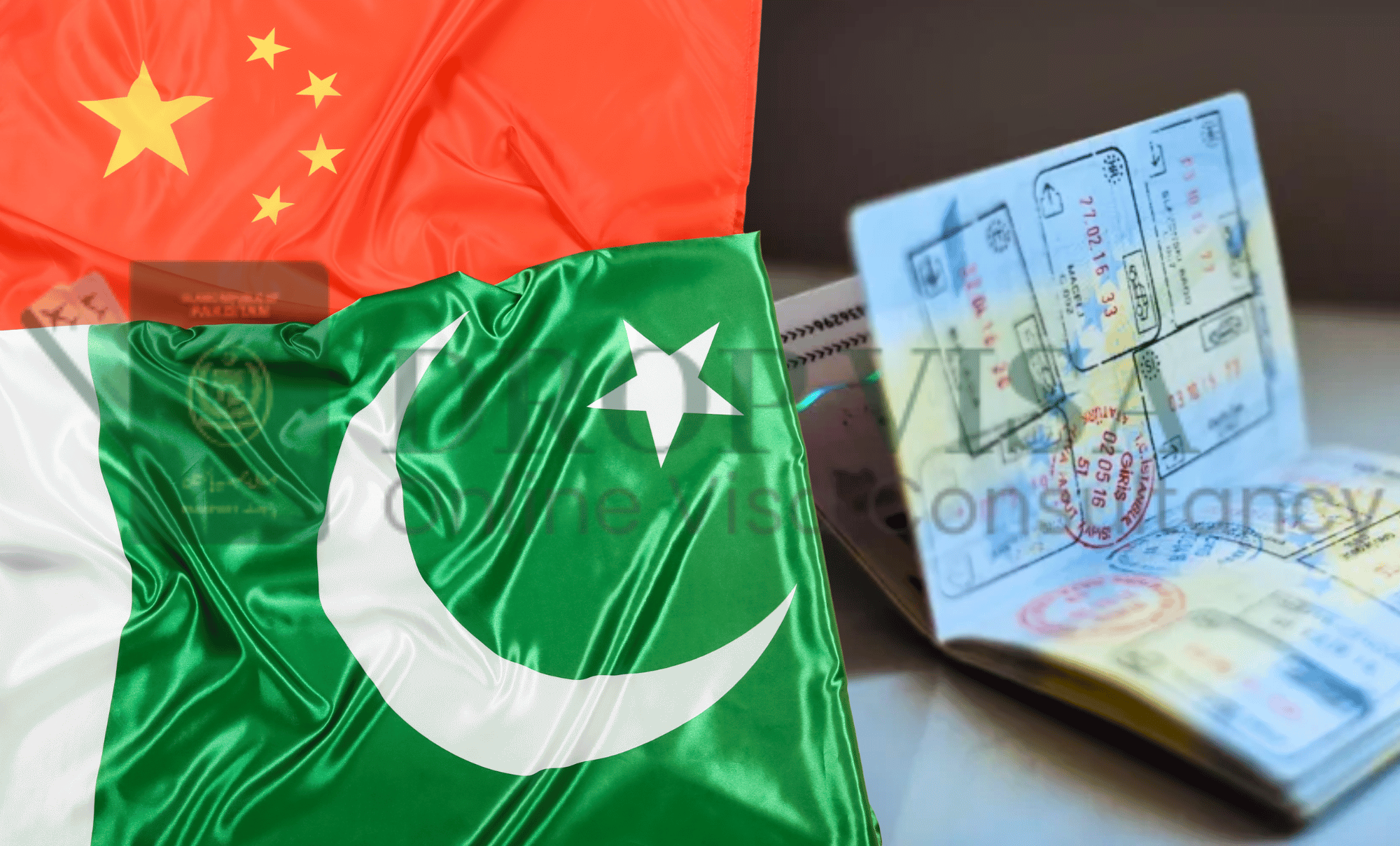K-Visa For Pakistani Professionals A New Gateway To Opportunities In China

Your complete guide to China’s new K-Visa and how it opens doors for Pakistan’s young science and technology talent.
China has introduced a groundbreaking visa category called the K-Visa, which is set to revolutionize opportunities for young professionals across the world. This initiative is particularly significant for Pakistan, a country with a growing pool of skilled graduates and researchers in the fields of science, technology, engineering, and mathematics (STEM). Starting from October 1, 2025, Pakistani students, researchers, and professionals will be able to apply for the K-Visa without the traditional barriers of job offers or employer sponsorships.
What is the K-Visa
The K-Visa is China’s latest addition to its visa categories, specifically created to attract young global STEM professionals. It is designed to bring in bright minds who can contribute to scientific research, technological innovation, and academic collaboration. Unlike many other visas, the K-Visa is unique because applicants do not need to secure a job offer or an invitation letter before applying.
Key eligibility criteria include:
• Holding a bachelor’s degree or higher from a recognized university.
• Being actively involved in education, research, or professional STEM roles.
• Meeting basic requirements for age, education, and experience.
• No requirement for sponsorship from a Chinese employer.
Opportunities for K-Visa Holders
Once approved, K-Visa holders will enjoy a wide range of opportunities and benefits inside China. These include:
• Participation in scientific, educational, and cultural exchange programs.
• Longer validity periods compared to most visas, allowing extended stays.
• Easier re-entry with the option for multi-entry visas.
• Access to Chinese research institutions, labs, and universities for career and academic growth.
These features position the K-Visa as a powerful tool for professional development and cross-border collaboration in high-tech fields.
Why the K-Visa Matters for Pakistan
For Pakistan, the K-Visa represents a golden opportunity. The country produces thousands of STEM graduates every year, many of whom struggle to find suitable jobs abroad due to strict visa requirements. With the launch of this visa, Pakistani professionals can directly access China’s thriving innovation ecosystem.
Key benefits for Pakistan include:
• Increased access to cutting-edge research and technology.
• Opportunities for Pakistani graduates to build international networks.
• Strengthening Pakistan-China academic and professional partnerships.
• Potential for returning professionals to bring back advanced skills that can boost Pakistan’s tech industry.
How the K-Visa Works
The application process for the K-Visa will be straightforward and managed by multiple Chinese authorities, including:
• The Ministry of Foreign Affairs of China.
• Public Security Bureaus in China.
• Chinese embassies and consulates abroad, including in Pakistan.
Applicants will be able to apply for issuance, renewal, and extensions of the visa, along with support for residence permits. This makes it easier for Pakistani professionals to settle, work, and collaborate in China without unnecessary bureaucratic obstacles.
Comparison with Other Chinese Visas
Currently, China offers more than a dozen visa categories, including:
• L Visa – For tourism.
• D Visa – For permanent residence.
• G Visa – For transit.
The new K-Visa is specifically focused on talent attraction in STEM. By offering longer validity, simplified processes, and the removal of job offer requirements, it stands apart as one of the most progressive visa initiatives to date.
China Talent Power Strategy
The K-Visa is part of China’s broader Talent Power Strategy, an ambitious plan to position the country as a global leader in technology and innovation. By attracting international talent, China aims to strengthen its research institutions, enhance innovation capacity, and create stronger connections with countries like Pakistan that already share close economic ties under initiatives such as the China-Pakistan Economic Corridor (CPEC).
Challenges for Pakistani Applicants
While the K-Visa offers numerous benefits, there are also potential challenges:
• Global Competition – Pakistani applicants will compete with young professionals worldwide.
• Brain Drain – There is a risk that Pakistani professionals may choose to remain abroad, limiting benefits at home.
• Eligibility Criteria – Terms like “prestigious institutions” may restrict access for average graduates.
• Unclear Details – Information such as age limits, visa duration, and renewal processes are still being finalized.
Tips for Pakistani Professionals Applying for the K-Visa
If you’re a Pakistani graduate or professional looking to apply, here are some useful tips:
1. Prepare Documentation Early – Gather transcripts, degree certificates, and research experience documents.
2. Highlight Research & Projects – Strengthen your profile with published work, conferences, and collaborations.
3. Connect with Chinese Institutions – Build relationships with universities or labs to support your application.
4. Stay Updated – Keep track of announcements from the Chinese Embassy in Pakistan regarding official requirements.
What This Means for Pakistan Future
The K-Visa has the potential to reshape how Pakistan’s young talent engages with the global economy. By encouraging academic exchange, technological learning, and professional networking, it can serve as a catalyst for both individual growth and national development. However, to maximize its benefits, Pakistan will need policies that encourage returning professionals to contribute their knowledge and skills back home.
Key Notes
The introduction of the K-Visa by China is a forward-looking initiative that creates immense opportunities for Pakistan’s youth. With no job offer requirement, extended validity, and streamlined applications, it lowers barriers for ambitious graduates and researchers to access one of the world’s fastest-growing tech hubs. If managed well, it can open a new chapter in Pakistan-China relations, empowering the next generation of innovators, scientists, and engineers.
Worldwide Visa Information for Pakistani Passport:

